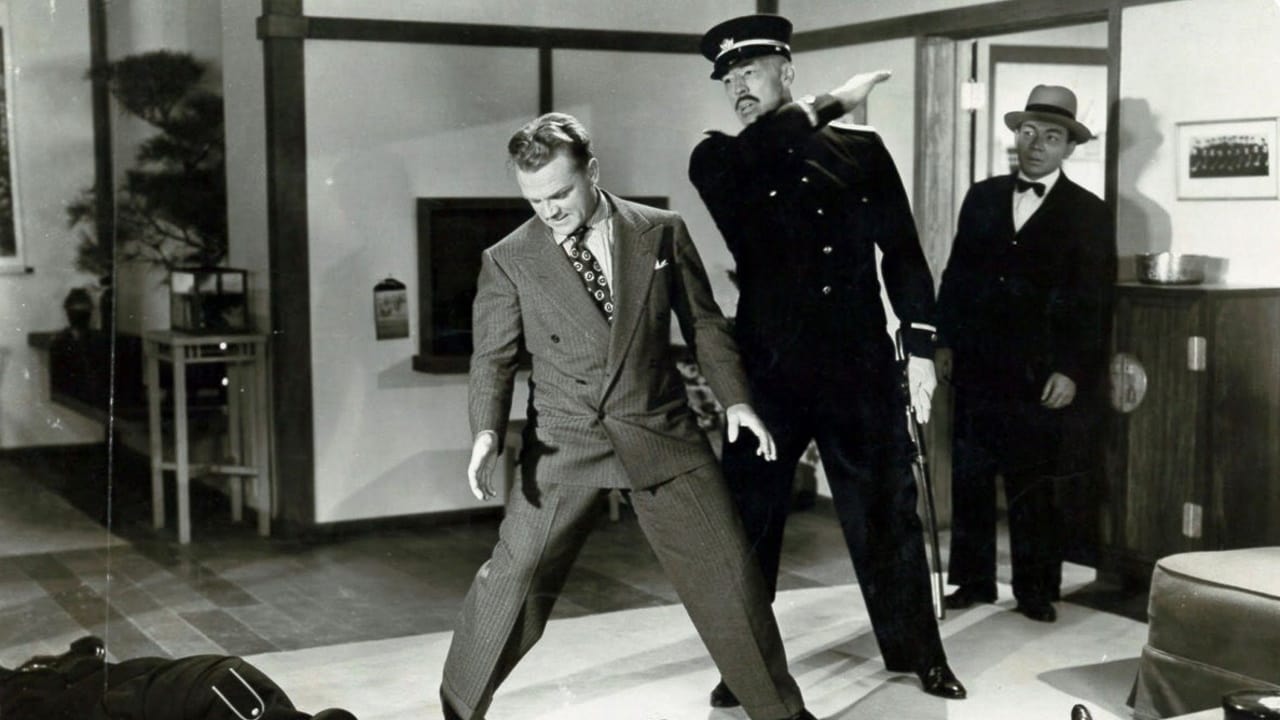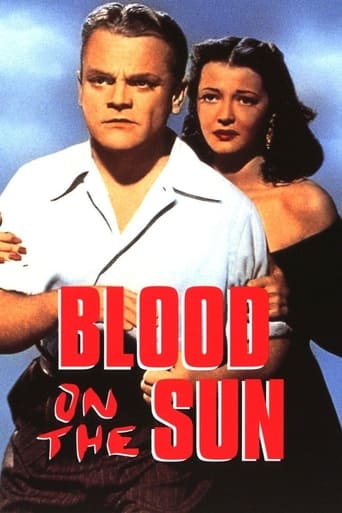Melanie Bouvet
The movie's not perfect, but it sticks the landing of its message. It was engaging - thrilling at times - and I personally thought it was a great time.
Ginger
Very good movie overall, highly recommended. Most of the negative reviews don't have any merit and are all pollitically based. Give this movie a chance at least, and it might give you a different perspective.
Geraldine
The story, direction, characters, and writing/dialogue is akin to taking a tranquilizer shot to the neck, but everything else was so well done.
Jerrie
It's a good bad... and worth a popcorn matinée. While it's easy to lament what could have been...
Leofwine_draca
James Cagney goes to Japan in this dated slice of anti-Japanese propaganda which sees the gangster star tackling a government intent on world domination. With much of the supporting cast made up of American actors "yellowed up" for their roles and a decidedly anti-Japanese sentiment to the storyline and its resolution, it's hard for modern viewers to enjoy this one.Cagney is as good as ever as the crusading reporter aiming to bring to light secret plans by a sinister government, but his role is one of those which could have been played by anybody and he can do little with it. In a nutshell, he's not as fun as he was in his gangster movies. The supporting cast is also a disappointment, made of up caricatures and stereotypes for the most part. While BLOOD ON THE SUN does boast a handful of fun martial arts fight scenes and a couple of decent set-pieces - especially at the climax - as a whole it's a rather middling slice of screen entertainment.
Tad Pole
. . . a brave American journalist got wind of Japanese Imperialism and nipped WWII's Pacific Theater in the bud, saving millions of lives. James Cagney portrays Nick Condon in this Biopic, since Nick was half Irish and half Norweigen, just like Cagney himself. Nick got wind of the Japanese militarists' secret plot to conquer first China, then Singapore, the Philippines, Alaska, Hawaii, etc. Being educated in American public schools, Nick easily out-smarted Yamamoto and Tojo, as shown here. So the Rape of Nanking, the Sneak Attack on Pearl Harbor, the Bataan Death March, the BRIDGE ON THE RIVER KWAI, Midway, Attu, Guadacanal, Corregidor, Tarawa, Iwo Jima, the A-bombs and so forth became the bad dreams of an Alternate Reality. When you try to square today's American interstates being clogged with Japanese cars, today's American fingers being glued to Japanese devices 24\7, and today's American Major League Baseball teams crawling with Japanese players, whose version of U.S.-Japanese relations in the 1900s seems more plausible--Wikipedia's or Nick's? I, for one, say Nick's does.
oscar-35
*Spoiler/plot- 1945, An independent and famous American newspaper reporter and investigative journalist stationed in Tokyo Japan gets mixed up in a spy ring and the Imperial secret police. A beautiful spy becomes his friend.*Special Stars- James Cagney, Sylvia Sidney, John Halloran *Theme- Americans are always on the side of truth and fair play.*Trivia/location/goofs- Vintage Warner Brothers studio movie supporting the war effort. Bette Davis was instrumental in influencing Jack Warner to become more active in the studio War effort. Plot loosely based on a real event in the 20's called the Tanaka Memorandum.*Emotion- An enjoyable but rather 'dated' war film with raucous, irreverent all American tough-guy newspaper reporter and investigative journalist played by Jimmy Cagney. There is plenty of action, intrigue and colorful clichés' about the Japanese culture.
gpeevers
American newspaperman Nick Condon (James Cagney) who is based in Tokyo sets out to expose the imperial plans of a faction of the Japanese government prior to outbreak of WWII. The story is based on an historical incident, but the document in question is now believed by most to have been a forgery. The document supposedly outlined a plan to conquer China and eventually the United States.Condon who has already been critical of the militarist faction in the Japanese government comes into possession of the Tanaka document but before he can expose its contents he needs to get out of Japan though the authorities are watching him very closely. A half Chinese woman (Sylvia Sidney) ostensibly assisting the authorities in their investigation serves as both an ally and a love interest for Condon. The Japanese characters for the most part are thinly sketched and include historical figures such as Giichi Tanaka and Hideki Tojo.James Cagney is moderately successful in his role and Sylvia Sidney is adequate but neither they nor the capable supporting cast deliver any memorable performances. In addition the film had an Oscar winning director in Frank Lloyd and a score by Oscar winning composer Miklós Rózsa but they also fail to deliver anything noteworthy. Despite some solid components there is just not anything very compelling here.The film license unfortunately lapsed and it seems most versions of this film available including the one I watched have been colorized from the original Black and White.Obviously as with all films it is a product of its time; having been made in 1945 and in that context the film is not excessively racist though it is present and certainly does reflect a patriotic American point of view from that era. The common Japanese people are treated fairly well as are aspects of the culture, Condon uses Judo several times in the film.Most of the primary Japanese characters in the film are played by Caucasian actors while some of the supporting cast is actually oriental.

